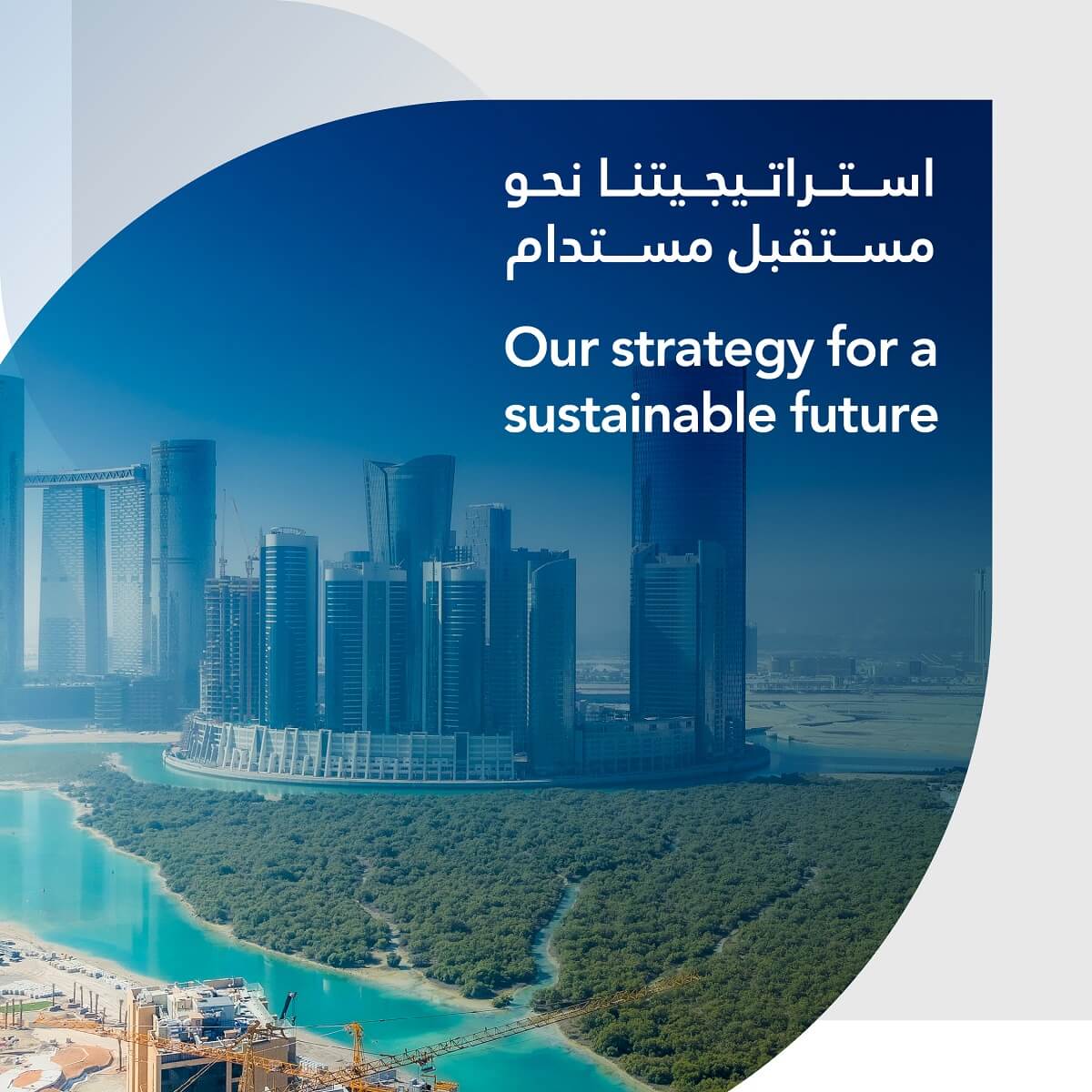
Abu Dhabi is making significant progress in implementing its various policies and initiatives to build resilience and prepare the emirate to confront the impacts of climate change.
With the global pandemic and economic setback causing the world to endure a tough time over the past couple of years, Abu Dhabi is ensuring climate change policy is not marginalised, as environmental sustainability is more critical than ever. The Emirate of Abu Dhabi is making sure it is taking the right steps to tackle the impact of climate change to make it safe for its residents.
Aligning to this objective, the Department of Municipalities and Transport (DMT) has put environmental sustainability at the top of its priorities by setting strict policies and procedures to ensure the emirate is prepared to face the impact of climate change challenges like extreme weather conditions, droughts, wildfires, storms, floods, and sea level rise which in turns impacts biodiversity, food security and water availability.
As part of its efforts to prepare Abu Dhabi for these challenges, DMT is continuing to implement the 'Plan Maritime: Abu Dhabi Coastal and Marine Framework Plan', developed in coordination with a host of government agency stakeholders, as a component of its strategy to ensure the long-term viability of the coastal and marine areas. It has established stringent policies and procedures for developing waterfront areas across Abu Dhabi, which include a minimum sea protection standard and a habitable space ground level standard.
The framework provides strategic planning guidance and direction for all waterways and coastal and maritime areas within the Abu Dhabi Emirate. The plan ensures that investments and projects in Abu Dhabi's marine and coastal regions are sustainable by establishing a comprehensive, streamlined, and up-to-date regulatory framework.
His Excellency Falah Al Ahbabi, Chairman of the Department of Municipalities and Transport, said: "The effects of climate change vary, and our resilience planning is tailored to the needs of our emirate and the environmental factors affecting the region. We are implementing several initiatives and policies across different sectors to ensure the overall long-term impact of all our efforts can be enjoyed by future generations.
"For example, design standards and building codes are crucial to making cities more resilient to climate change. Changes in building height, foundation design, moisture build-up, and debris damage can increase the resilience of cities. We have incorporated shatter resistant film in all windows, doors and glass surfaces as one of the necessary specifications of new buildings to make its cities more resilient to climate impacts and allow them to recover faster."
DMT also launched its sustainability initiative, Estidama, the first of its kind tailored to the Middle East region to plan, design, construct and operate sustainable developments concerning the traditions embedded within the rich local culture on the one hand and the harsh climatic nature of the region on the other. As part of its Pearl Rating Systems, Estidama encourages water, energy, and waste minimisation, as well as local material usage, to improve supply chains for sustainable and recycled materials and products.
Through the Transportation Mobility Management Strategy (TMM) and Surface Transport Master Plan, Abu Dhabi is working towards providing world-class sustainable mobility solutions by responsibly using resources, reducing pollution, and preserving Abu Dhabi's unique environment. It incorporates public transport infrastructure powered by renewable energy technology and alternative fuels, a commitment to lower CO2 emissions in all aspects of transport from design to construction to operation, and a commitment to encourage walking, cycling, and respect for the natural environment.
DMT is making significant efforts to move toward a sustainable mode of transportation by working towards introducing autonomous and shared vehicles, adaptive traffic signals, and data-driven last-mile mobility solutions.
His Excellency Falah Al Ahbabi said: "We recently introduced the autonomous TXAI and Robobus services in Abu Dhabi as part of our efforts to build a smart transport system that supports development across various sectors and facilitates the mobility of its residents and visitors. With smart mobility, Abu Dhabi can reduce traffic congestion, improve road safety, improve transportation accessibility and affordability, promote economic growth and protect the environment by reducing carbon emissions while improving the quality of life for our residents."
UAE is also making significant efforts to achieve climate goals set by global initiatives and events such as the Paris Agreement, the Sustainable Development Goals, and the World Urban Forum. DMT has engaged in international platforms such as the WUF 11 and COP 26 to promote collaboration and knowledge exchange by discussing climate resilience, adaptation and mitigation strategies, energy and resource efficiency standards, multilevel governance and innovative policy frameworks, climate change finance and urban climate change science and innovation.
His Excellency Falah Al Ahbabi added: "We need a global community response and international cooperation to be better prepared, take more substantial responsibility for our climate change preparations, and move towards a zero-carbon economy. Planning safer cities or redesigning cities to become climate resilient innovation centres and implementing relocation strategies for risky areas are two ways to accomplish this.
"We have an enormous opportunity to invest in nature and showcase our natural capital. We can enhance urban green spaces by adding more trees to absorb carbon emissions and protecting and restoring wetlands and coastal habitats such as mangroves. Over the last two years, we have witnessed how the private, public, and third sectors have come together successfully to tackle the pandemic. This collaboration needs to continue so we can face the challenges climate change and the subsequent rise in sea levels is present our way."
DMT is continuously evaluating the impacts of its policies to ensure they are appropriately updated to protect the shoreline developments of the Emirate of Abu Dhabi, reducing Greenhouse Gas emissions and protecting vulnerable habitats. The department aims to position Abu Dhabi as a benchmark for integrated sustainability planning and the prudent management and development of natural resources.
